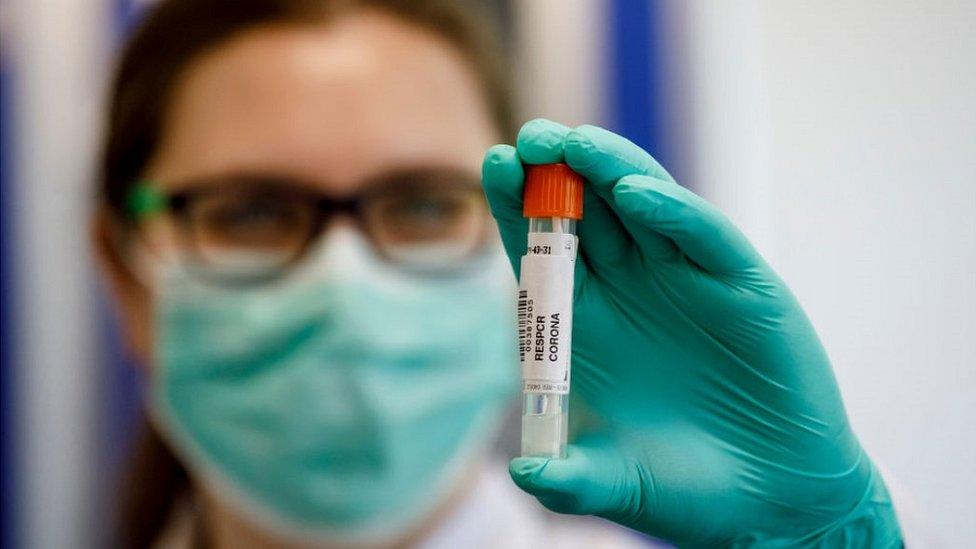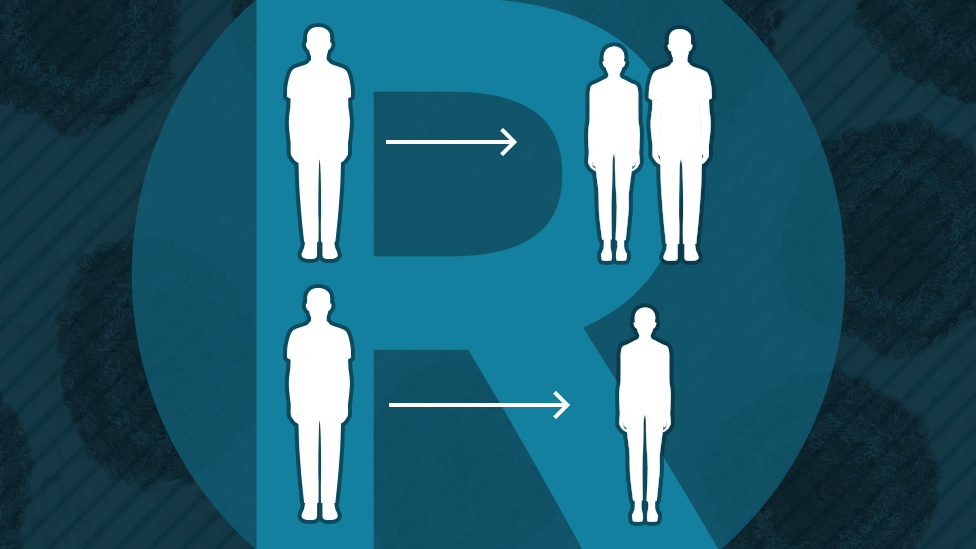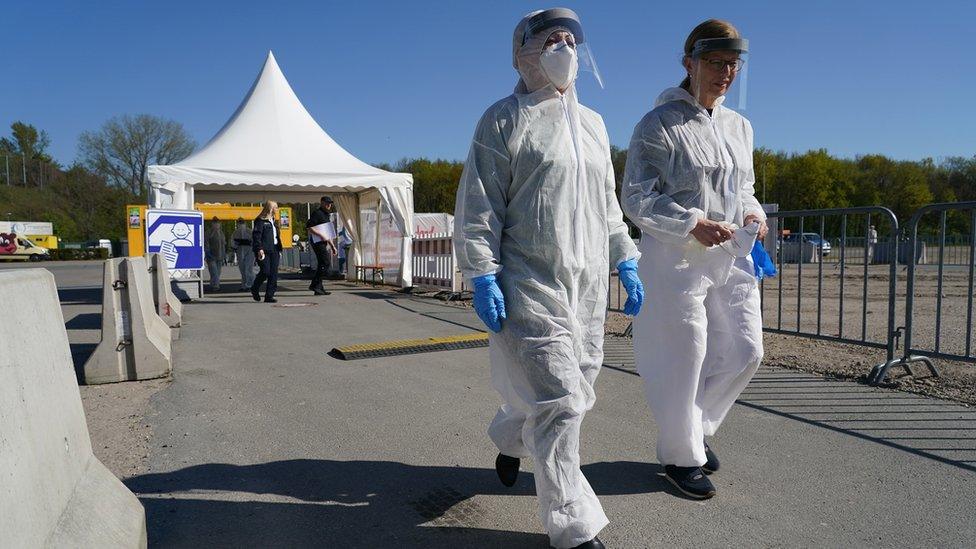Coronavirus: Germany not alarmed by infection rate rise
- Published

Large-volume testing has helped to limit the spread of Covid-19 in Germany
The scientific body advising the German government on coronavirus says it is not concerned that the virus reproduction rate - the R rate - has been above one for three straight days.
Above R1.0 means that, statistically, one infected person is passing the virus to more than one other person.
But Lars Schaade of the Robert Koch Institute (RKI) said only if the R value rose above 1.2 or 1.3 for several days would he be worried.
The data is also subject to delays.
Mr Schaade said "individual days are not a problem".
He also said that the fewer the overall number of infections, the greater the impact of an outbreak - like those recently reported in slaughterhouses - on the R value.
Hundreds of workers in German slaughterhouses - many from Eastern Europe - have tested positive and now thousands more tests are being done in that sector. One slaughterhouse alone - in Coesfeld, North Rhine-Westphalia - has seen 260 cases.
"If the second decimal digit were above 1 that would not yet be critical. But the higher it goes above 1, like 1.2 or 1.3 and over a longer period of time, it would create a situation where we would pay very close attention and think about measures how to countersteer that," Mr Schaade said.
RKI said on Tuesday the total of deaths in Germany from Covid-19 had reached 7,533. The daily average of deaths in the past week was 100 to 200. The death tolls in some other European countries - notably Italy, the UK and Spain - are much higher.

Why Germany is not alarmed by R rate

Judging the level of threat from the coronavirus depends on understanding the rate at which it's spreading - what's known as 'R'.
If that rate goes above 1, the outbreak can escalate because anyone infected can pass the virus to more than one other person. But that is not the whole story.
What also matters is the actual scale of infection - the numbers of people catching the virus.
So in Germany, while the R is now slightly above 1, and may go higher, the authorities are concerned but not panicking.
That's because it's estimated that fewer than 1,000 Germans are becoming infected every day.
So even if the rate of spread accelerates, the problem can be handled with careful surveillance and mass testing, because the numbers involved are manageable.
By contrast, it's thought that in the UK something like 20,000 people are becoming infected every day - far fewer than at the height of the outbreak, but still a serious number.
And at that scale of infection, even a small rise in the R rate could have a dangerous impact, potentially overwhelming the health service with a second peak in the crisis.

Prof Tobias Welte of Hanover University is on the German Covid-19 task force. He told the BBC World Service that "we are in a stable phase, so we are somewhere between 600 and 1,000 new infections a day and these now for about a week are very stable numbers".
"One change in Germany which could be recognised: we now have some hotspots of infections, for example meat production, some kinds of industry, but if you look in broad over Germany the numbers are going down."
RKI reports that 170,508 people have tested positive for Covid-19 in Germany and in the past 24 hours there were 933 new infections.
The Germany infection figure according to Johns Hopkins University is slightly higher - 172,626.

EUROPE'S EASING: How lockdown is being lifted
THE R NUMBER: What it means and why it matters
GLOBAL SPREAD: Tracking the pandemic
RECOVERY: How long does it take to get better?
A SIMPLE GUIDE: What are the symptoms?

- Published26 March 2021

- Published10 May 2020
